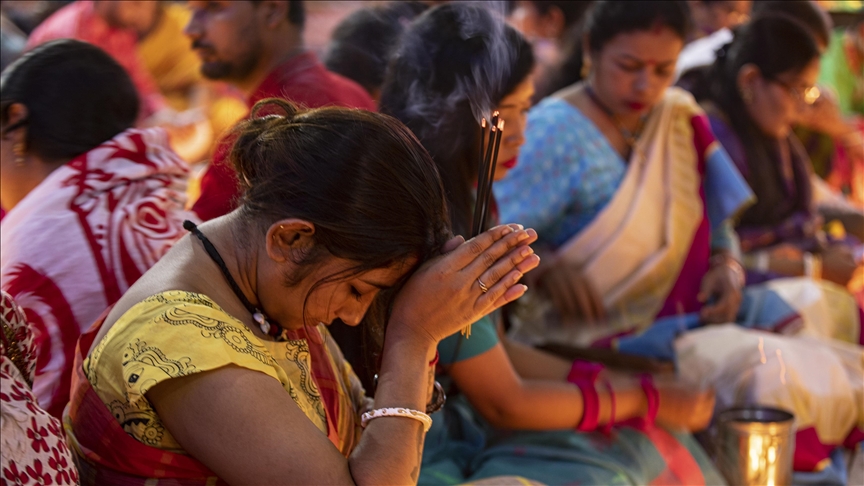Indian court permits Hindus to pray in Varanasi mosque
Court allows priest's kin to hold prayers inside one of the sealed cellars at Gyanvapi Mosque in Uttar Pradesh state

NEW DELHI
A court in India’s northern state of Uttar Pradesh has ruled that Hindus can offer prayers at the 17th century Gyanvapi Mosque located in the ancient city of Varanasi, lawyers representing Hindu petitioners said Wednesday.
The Varanasi district court allowed the kin of “the priest named by the Kashi Vishwanath Trust Board” to hold prayers and directed the administration to make arrangements within seven days to conduct worshipping rituals inside one of the sealed cellars inside the mosque, the lawyers said.
“Prayers will start in seven days,” Vishnu Shankar Jain, one of the petitioners’ lawyers, told reporters in Varanasi.
The Gyanvapi Mosque, located adjacent to the 18th century Kashi Vishwanath Temple, is now at the center of an ongoing legal battle in India.
The court’s decision came days after the Archaeological Survey of India, a government agency, concluded that “it can be said there existed a Hindu temple prior to the construction of the existing structure.”
The Anjuman Intezamia Masjid Committee, the Muslim party in the dispute, said however that it was just a report and not a final decision.
After the Babri Masjid in the northern city of Ayodhya in Uttar Pradesh, Gyanvapi is another medieval mosque that is being claimed by Hindus.
On Dec. 6, 1992, the 16th-century Babri Mosque was torn down by Hindu hardliners who claimed the site was the birthplace of Lord Ram. After a top Indian court settled the issue of the ownership of the site in 2019 and handed over the site to Hindus and allowed the construction of a temple, Prime Minister Narendra Modi inaugurated the grand Ram temple this month.
Hindus widely believe that the Gyanvapi Mosque was built on the orders of the Mughal ruler Aurangzeb, by pulling down part of the Kashi Vishwanath Temple in the 17th century. Muslims, however, argue that it was on the premises of the Waqf Board, responsible for the maintenance of Islamic properties in India.
Earlier, a suit was filed by five Hindu women seeking worshipping rights in the mosque compound.
Last year, an Indian court ruled that officials can conduct a scientific survey.
The Muslim groups had opposed the survey, saying it was against the Places of Worship Act of 1991, which maintains the religious status of any place of worship as of Aug. 15, 1947.
The Hindu side even claimed that a court-appointed team in a survey had found relics of the Hindu god Shiva inside the pond in the courtyard of the mosque meant for ablutions before prayers.
Anadolu Agency website contains only a portion of the news stories offered to subscribers in the AA News Broadcasting System (HAS), and in summarized form. Please contact us for subscription options.







